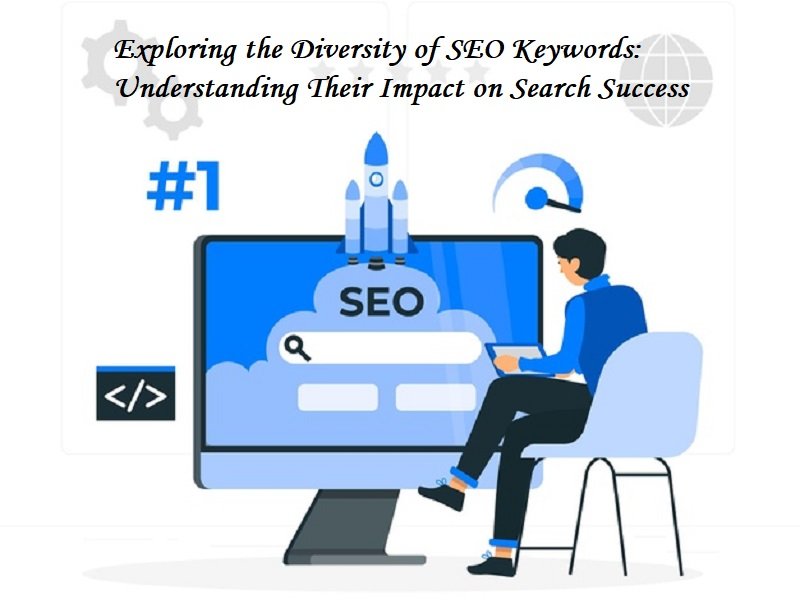Exploring the Diversity of SEO Keywords: Understanding Their Impact on Search Success
Disregarding the fundamental purpose of keywords serving as pathways for search engines to find relevant answers can lead to an ineffective SEO strategy.
Understanding the different types of keywords in SEO is paramount. Let’s explore these categories:
Keywords Based on Length
Keywords can be categorized based on their length into three types: short-tail, mid-tail, and long-tail.
a. Short-Tail Keywords
These are the simplest, shortest, and often one or two-word phrases with high search volumes and intense competition. However, they lack clear search intent, making it a challenge for newer websites to compete in this arena.
Examples:
b. Mid-Tail Keywords
Slightly longer than short-tail keywords, these phrases contain more words, exhibit less competition and search volume, and often offer clearer search intent by combining a short-tail keyword with an explanatory phrase.
Examples:
- Tips to cut foods
- The secret of recruiting candidates
c. Long-Tail Keywords
Comprising specific and detailed phrases, long-tail keywords possess strong search intent and conversion potential but exhibit lower search volume. These are easier to rank for and highly recommended for newer websites.
Examples:
- How to make an arrangement
- How to lower blood sugar
- How to get rid of cockroaches
Keywords Based on Buyer Intent
Apart from length, SEO keywords can also be categorized based on buyer intent into three groups:
a. Informational Keywords
Marketers target these keywords to boost brand awareness. These phrases usually include queries or procedures sought by users, contributing not only to brand visibility but also to building topical authority and trust.
Examples:
- Fastest runner in the world
- Slowest animal in the world
- Praying time
b. Navigational Keywords
When users intend to search for a specific brand, they use navigational keywords. These phrases carry substantial search volume for established brands and help smaller companies authenticate their legitimacy.
Examples:
- KFC chicken
- Starbucks coffee
c. Transactional Keywords
These keywords signify a user’s readiness to make a purchase or engage in a transaction. They reside at the bottom of the purchasing funnel.
Examples:
- Price of B Watch
- Last Day Discount on Product B
- How to buy surfer board C via transfer
Understanding these keyword types is pivotal for SEO success. Ignoring keyword intent can hinder your efforts. Clarity in search intent drives organic traffic and enhances conversions over time.
By comprehending and leveraging these keyword types effectively, you’ll witness a steady increase in organic traffic and conversions, paving the way for sustained growth in the months and years ahead.
Conclusion: Mastering Keyword Types for SEO Success
Understanding the diverse landscape of keywords in SEO is pivotal for a successful digital strategy. The categories, whether based on length or buyer intent, offer unique opportunities for targeting and reaching your audience effectively.
Keywords, classified by length into short-tail, mid-tail, and long-tail variations, each hold distinct characteristics. Short-tail keywords, although high in competition, lack explicit intent and might pose challenges, especially for new websites. In contrast, mid-tail keywords strike a balance with less competition and clearer intent, while long-tail keywords, despite lower search volume, hold high conversion potential and are ideal for newer websites.
On the other hand, understanding keywords through the lens of buyer intent informational, navigational, and transactional provides insights into user behavior. Informational keywords aid in brand visibility and trust-building, navigational keywords solidify brand association, while transactional keywords capture users ready for conversions.
The key takeaway is that the effectiveness of an SEO strategy lies in comprehending and leveraging these varied keyword types. Ignoring their intent might hinder organic traffic and conversions. By recognizing and utilizing these types strategically, businesses can witness consistent growth and success in their digital endeavors, securing a stronger position in the competitive online landscape.
Post Views: 55







